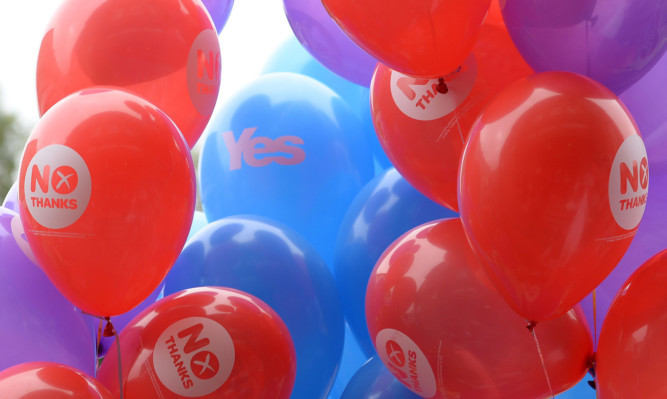The No campaign has retained a narrow lead ahead of the independence referendum, according to the latest opinion polls.
A YouGov survey for The Sun and The Times found 52% of Scots are to vote for the union, with 48% favouring independence when undecided voters are excluded.
The result was mirrored in a Panelbase survey, which also found 52% of Scots back the union compared to 48% for independence, again when undecided voters are excluded.
A survey by Ipsos-Mori for the broadcaster STV suggests the gap could be even closer.
It found 51% of people are voting No, with 49% backing Yes, when undecided voters are excluded.
When those who are yet to make up their mind are factored in, the No campaign is on 49%, Yes on 47% and 5% said they do not know how they will cast their ballot.
The YouGov result remains unchanged from the last poll it conducted six days ago.
It excludes the “don’t knows”, who made up 6% of the survey.
It said its research also suggests men are more likely to vote for independence by a margin of 54% to 46%, while women would prefer Scotland to remain in the UK by a margin of 57% to 43%.
YouGov said the result was compiled after 3,237 electors were questioned between September 15 and 17.
The Panelbase survey came out less that 24 hours before voting gets under way in the referendum and was another indication that the campaign over the future of the UK could go down to the wire.
Exactly half (50%) of the 1,004 people who were questioned said they would be voting No to independence, with 45% voting Yes.
Just one in 20 (5%) of voters have still to make up their mind, according to the research.
It added men continue to be more likely to support Scotland leaving the UK, with 54% of all males who were questioned said to be Yes voters, ahead of 44% who are voting No and 3% who are undecided.
Just under two-fifths (39%) of women questioned said they would be voting Yes, with 54% backing No and 7% still undecided.
